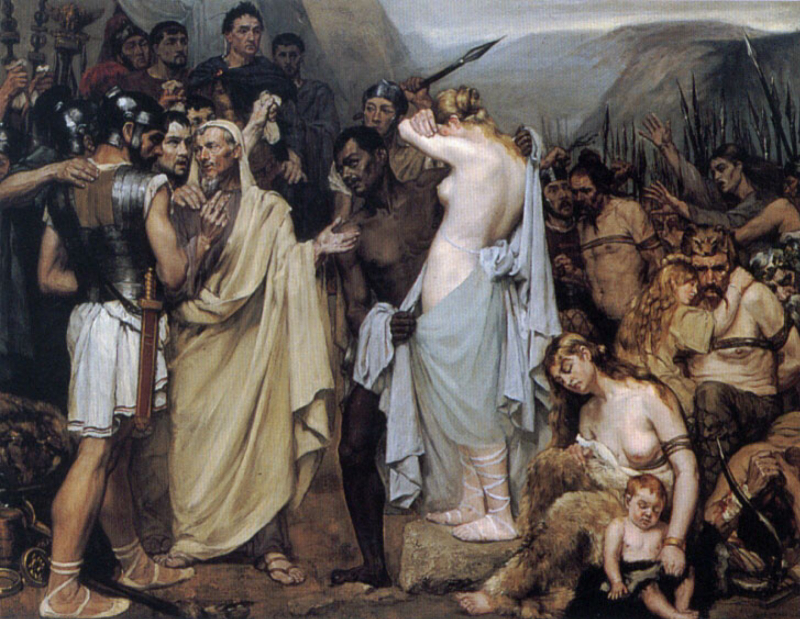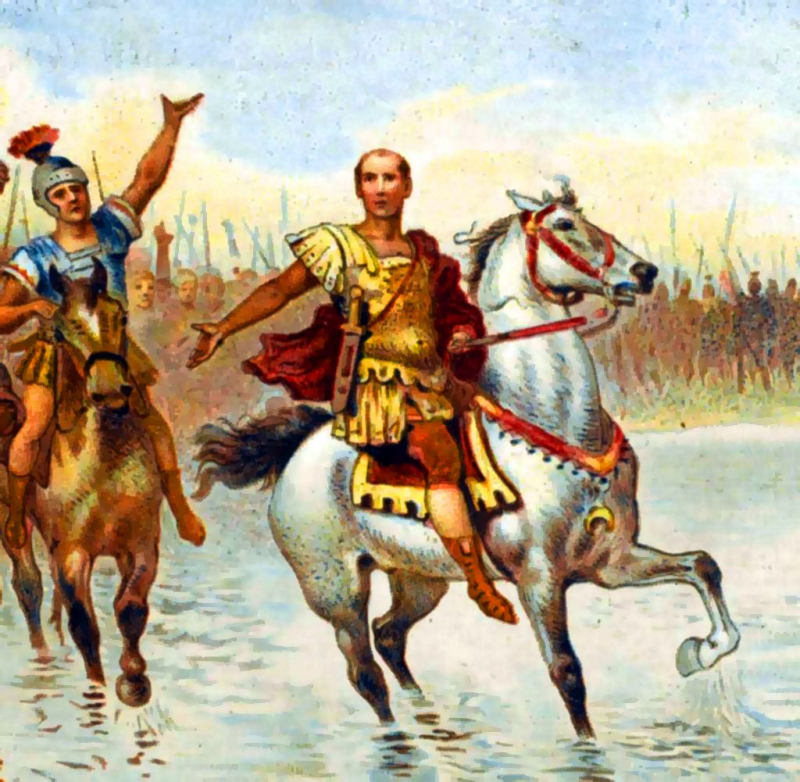Julius Caesar is considered one of the greatest military commanders in history
Julius Caesar's military career began at the Siege of Mytilene (81 BC), where he was awarded the Civic Crown, the second highest military medal for a citizen. During the Gallic Wars, he invaded Britain twice and established a Rome-friendly ruler. During the Great Roman Civil War (49–45 BC), he fought multiple battles against Pompey and the Roman Senate. Despite being outnumbered 2:1, he famously beat Pompey, who was also noted for his military prowess, at the crucial Battle of Pharsalus (48 BC). Apart from defeating numerically superior opponents in the civil war, Caesar also conquered Egyptian monarch Ptolemy XIII at the Battle of the Nile (47 BC) and placed Cleopatra as Queen of Egypt.
Caesar was a skilled novelist, historian, and statesman, and much of his life is known from his own chronicles of his military battles. Other contemporary sources include Cicero's letters and speeches, as well as Sallust's historical writings. For his exploits, Julius Caesar is considered one of the greatest military commanders in history. His cognomen became a synonym for "Emperor"; the title "Caesar" was used across the Roman Empire, giving birth to contemporary cognates like Kaiser and Tsar. He has appeared frequently in literary and artistic works, and his political doctrine, known as Caesarism, has influenced politicians into the contemporary period.










